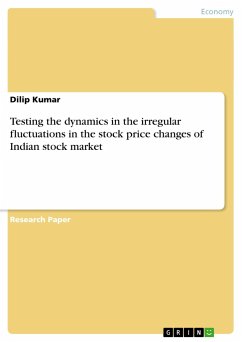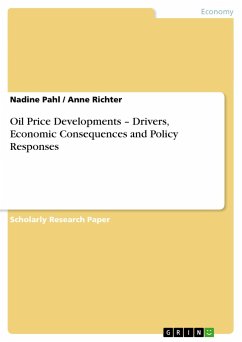Bachelor Thesis from the year 2013 in the subject Economics - Finance, grade: 2, University of Graz (Finanzwirtschaft), course: Internationale Finanzmärkte, language: English, abstract: The last decade was marked by the global financial crisis, the biggest recession since World War II, which led to turmoil on financial markets, bankruptcies of investment banks and slow growth in nearly all developed countries. With only an average annual growth rate of 1.5% since 2010 the biggest developed economies recovered only moderately from the crisis. Back in 2001 Jim O'Neill had already realized it was time to focus on new countries. In his opinion the four largest fast growing emerging economies were Brazil, Russia, China and India. Thus he created the acronym BRIC which symbolizes a power shift from developed countries to developing ones. In 2010, the year after the crisis their annual growth rate was about 8.2% compared to the weak 2.7% of developed countries. This goes along with forecasts that suggested a rise in capital, automotive and oil market leading each of the BRICs to overtake the major developed countries.Among these the most important market seems to be the oil market and more specifically the crude oil market. Crude oil has a share of 34% of the world's primary energy consumption and is likely to remain the same for many more decades. BRIC countries are large oil consumers and since 2011 have surpassed the United States (US) in oil consumption. Their strong representation in the crude oil market justifies a further analysis on each country's status. According to Hamilton (2009) the crude oil price development was strongly correlated to the financial meltdown. Thus, understanding the impact of oil price fluctuations can create a path towards a sustainable future growthThe target of this paper is to examine O'Neill's growing theory by investigating the crude oil market for Brazil, Russia, India and China. Furthermore analysing the effect of oil pricefluctuations on each country's financial market completes the assumptions in a quantitative manner.
Hinweis: Dieser Artikel kann nur an eine deutsche Lieferadresse ausgeliefert werden.
Hinweis: Dieser Artikel kann nur an eine deutsche Lieferadresse ausgeliefert werden.








